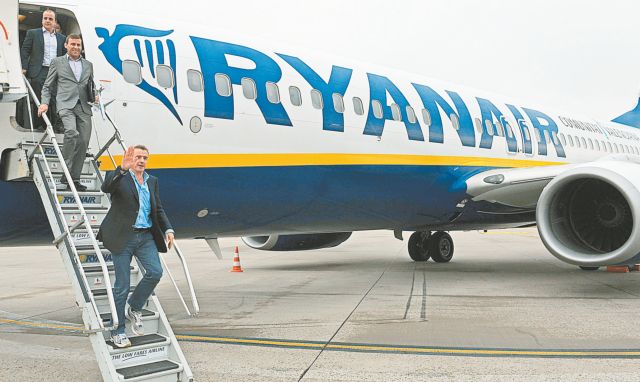On Thursday Ryanair’s deputy CEO Michael Cawley will present his company’s “rescue plan for Greek tourism”. The low-cost airline recently chose the airport of Chania as one of its bases and hopes to service over 500,000 customers, generating 160 million euros and 500 jobs for the local economy.
Mr. Cawley promised that Ryanair can bring 10 million travelers to Greece, under the conditions that there are no passenger charges for the new flights and that the “Eleftherios Venizelos” Airport reduced its toll by 5 euros. According to the airline, each traveler spends 1,000 euros on average in Greece.
Despite the optimism and promises though, Ryanair has a bad track record of abruptly ending contracts with new claims. The budget airline has a policy of signing contracts wit local authorities, since airports are not legally allowed to determine prices in favor of airlines or subsidize separately.
Last week the company announced that it would cease all flights from Nea Anchialos in September. According to the regional governor of Thessaly Kostas Agorastos, the Irish airline demanded that the 3-year contract renewal be signed immediately, circumventing legal procedure.
Likewise, Ryanair ended its flights from the international “Macedonia” airport of Thessaloniki last summer, after about a year of operation. The original deal between Ryanair and the Tourism Organization of Thessaloniki made provisions for four subsidized flights (London, Brussels, Stockholm and Oslo), however the company decided to add a further nine destinations, for which it demanded subsidies.
By October of 2012, Ryanair also cancelled its flights to Rhodes and Kos, blaming the local tourist authorities and Dodecanese Growth and Development Company (DETAP) for “not following the agreed marketing campaign”. In early 2013 Ryanair returned to discuss a new two-year contract, with over 17 weekly flights to each island.





